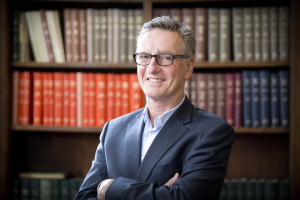University College is boost for Manchester students
17 Sep 2012
University of Manchester students will be able to broaden their horizons by studying with its world renowned researchers based outside their degree programmes.

Called The University College for Interdisciplinary Learning, Manchester students will ultimately have the opportunity to earn up to 30 credits – or 8 per cent of their undergraduate degree –studying a subject outside their comfort zones.
Though other universities have also offered opportunities for interdisciplinary study, it is the first time a UK University has set up a stand alone unit devoted to providing courses from across the institution.
“This is not just about broadening our students’ educational horizons, it’s about giving them richer skill sets which will ultimately make them more attractive to employers,” said University College Director Dr Peter Lawler.
“But it’s also about the joy of learning new things: there’s no reason why a physics student who loves poetry shouldn’t have access to one of our internationally acclaimed creative writing lecturers.
“Or a medical student should not also be exposed to the work of world renowned sociologist Professor James Nazroo, who specialises in aging,” he said.
One of the highlights will be when Professors Brian Cox and Geoff Forshaw each contribute to a lecture series called "Physics and the Grand Challenges of Today".
In addition to the courses, the College will hold three signature lectures, open to the public, staff and students. Though places will be limited to 100, each lecture will be recorded and available online.
Taking part in the signature lectures will be Nobel Prize winner Professor Kostya Novoselov, who will talk about the illegal trade in graphite.
President and Vice-Chancellor Professor Dame Nancy Rothwell - one of the world’s leading neuroscientists - will discuss science as a public good.
And Chancellor and co-founder of Urban Splash Tom Bloxham, will discuss how entrepreneurship can make a difference to urban regeneration.
Dr Lawler added: “One reason why The University of Manchester is in a unique position to offer University College, is because one of our strengths is our size.
“As one of the UK’s largest Universities, the subjects we cover and research are hugely varied and now all students will have a chance to be exposed to them.”
Second year undergraduate students will have a choice of 21 courses this year, but plans are to expand the offering significantly in the future.
Vice-President for Teaching, Learning and Students Professor Clive Agnew said: “This is a fantastic development for the University and follows from our review of undergraduate education and identification of the attributes of a Manchester graduate.
“It is strongly linked to our strategic vision, which pledges us to provide a superb higher education and learning experience to outstanding students.
“Irrespective of their backgrounds, our aim is to produce graduates with intellectual and leadership qualities, who will be an attractive prospect to any employer and contribute positively to society as a whole.”
Professor of Particle Physics Jeff Forshaw said: "The ability to think critically and understand the nature of the knowledge we are introduced to ought to be a key element of undergraduate teaching.
“It helps us to put things in context and make good decisions, whatever the nature of the problems we are faced with.
“I hope the University College can help with that by sharing ideas from different disciplines and I am happy to have the opportunity to contribute."
